- Home
- Alex Berenson
The Ghost War jw-2 Page 6
The Ghost War jw-2 Read online
Page 6
Now Kim had a call to make — to the man who had informed him of the Drafter’s treachery. He didn’t like depending on the Chinese. They used him and his people as pawns against the United States. But he couldn’t deny that this time, they’d proven valuable.
WASHINGTON LEARNED OF THE PHANTOM’S sinking not long afterward. At 00:08:02 local time, the boat disappeared from the screens of the E-2 Hawkeye. The plane immediately passed a message to the sonar operators on the USS Decatur—the destroyer in the Yellow Sea — advising them to listen for shock waves that might signal an explosion.
The Decatur didn’t have long to wait. The blast from the Alligator created a pressure wave that passed through the water at a mile a second, reaching the destroyer in under a minute. The sonar operators aboard the Decatur were used to tracking quiet Soviet submarines. To their trained ears, the blast wave sounded like a scream.
The Decatur reported the explosion to the combat information center at the USS Ronald Reagan, an aircraft carrier steaming in the Korea Strait. The Reagan sent the news to Osan Air Base. From there it went to the CIA station in Seoul. A few minutes later, the South Korean coast guard station at Incheon passed word that two containerships were reporting a fire in the Yellow Sea.
At this point, Bob Harbarg, the chief of Seoul station, decided he had to tell Langley. He fired off a Critic-coded message, the highest priority, reporting that the Phantom was missing and presumed lost. The agency hadn’t saved the Phantom, but it had done a fine job watching the boat sink.
The only question left was whether Ted Beck and his men had somehow escaped the boat. Four Chinooks scrambled from Osan Air Base to search for signals from the transponders that Beck, Kang, and Choe carried. A Predator drone was launched to photograph the site of the explosion. But the Chinooks and Predator found nothing. As the hours ticked by, the sailors on the Decatur, the crews on the Chinooks, and the spies in Virginia had to accept the truth. The men aboard the Phantom were lost.
On the Decatur and at Osan, the mission ended there. But at Langley, the Phantom’s sinking brought new urgency to a different set of questions.
THAT NIGHT, WELLS AND EXLEY walked down the Mall under a cloudless sky. The moon hung behind them, the Washington Monument rising toward it like a needle poised to pop a balloon. Aside from the joggers and Frisbee players sweating in the night air, they had the open green field to themselves. The hard-packed Mall path crunched under their feet, a sound Exley found oddly satisfying. She reached for Wells’s hand, squeezed it. He squeezed back.
“Jenny.” His voice was hardly above a whisper. “I won’t go if you don’t want me to.” She knew what he meant. Afghanistan.
“Shh.” She put her arm over his broad back, rubbing the scar tissue left over from his run-in with the police in Times Square. “Does it still hurt?”
“It’s fine.”
Would you tell me if it did? she wondered. Not a chance.
About thirty yards away a fat man in a gray suit sat reading the Post. He waved to them and pushed himself up, grunting like a loaded semi heading up a mountain pass. He was at least three hundred pounds, a coronary waiting to happen. He pulled a white handkerchief from his pocket and mopped his head.
“George Tyson. You must be the famous John Wells.” He put the handkerchief away and extended his hand. Wells let it dangle.
“Right. You don’t like being called famous, Mr. Wells. And you don’t like counterintelligence.” Tyson’s accent was humid and southern.
“Any reason I should?”
“I want to tell you that Vinny Duto didn’t ask my opinion of you. Back in the day, I mean. He had strong ideas about you. Still does.”
“And if he had asked? What would you have said?”
“A fair question, Mr. Wells. But try to remember how you looked to us back then. With your Quran and your disappearing act. Accept my apologies, then, and shake an old man’s hand.”
Wells reached out for Tyson’s big paw — and found himself gripping a joy buzzer. He grunted, more from surprise than pain, as the electricity rattled his palm. Tyson smirked. Wells vaguely remembered hearing about his practical jokes, his way of keeping alive the CIA’s traditions from the 1950s, before the agency turned into a bureaucratic monster.
“Cute, Mr. Tyson.”
“So now you’re wondering if I’m a fool, or merely pretending,” Tyson said. “Hard to say, I reckon. Maybe both.”
“Actually I was wondering how many punches I would need to break your jaw.”
“I’d rather we didn’t find out. It’s interesting, though, the way you responded to an unanswerable question with one that has a definite answer.”
“Double as a shrink in your spare time?”
“I’ll bet you don’t like them either, Mr. Wells.” Tyson turned to Exley. “And you must be Jennifer Exley. Where’s Ellis?”
“Waiting in the car, like you asked,” Wells said. To Exley: “Whatever you do, don’t shake his hand.”
“I’d never mistreat a lady.”
They walked on, heading toward the Capitol. Then Tyson turned back toward the Monument, craning his neck like a curious tourist. “Mr. Wells? Would you say there’s anyone on us at the moment?”
“I’d say no. Why? You have some genius tracker following us? Somebody who can smell bear scat at fifty paces?”
“As a matter of fact, I don’t. As far as I’m concerned, the fewer people who know about this meeting, the better.”
“So we’re on the Mall? I see why you’re a master of counterintel.”
“Come now, Mr. Wells. You know there’s nothing better than a nice open space where we can see anybody who wants to see us. I’m not concerned about these joggers.”
“Yeah, you don’t strike me as the type to care much about exercise.”
“John,” Exley said. She turned to Tyson. “Ignore him, George. He’s been acting out recently.”
“So I hear.”
“So you hear?” Wells said.
“Mr. Wells. I heard only from Ellis. He’s concerned about you.”
“Is that why you’re here? An intervention? To convince me to behave?”
“Mr. Wells. Believe it or not, I’ve got a few other problems.” Tyson’s syrupy accent faded notably. He stuffed the joy buzzer into his pocket and leaned in close to Wells, putting his hands on Wells’s shoulders. “I said that Mr. Shafer is concerned about you. Not that I am. Others across the river may think that you’re some kind of superspy. You may think so, for all I know.”
“No, I don‘t—”
“Please let me finish. Me, I’m not a fan of the great-man theory of history. The Confederacy had all the best generals and we still lost the war. I think you got lucky in Times Square. We all got lucky. You are here tonight because Mr. Shafer wants you to be. Not me. Are we clear?”
Wells’s face tensed and he stood rigid under Tyson’s heavy hands. He stepped back, shook Tyson’s hands off his shoulders. For a moment Exley thought Wells might actually hit Tyson. Then Wells’s face softened.
“We’re clear. Thank you.” He stuck out his hand, and after a moment Tyson put out his own. They shook for a long time before Wells finally let go.
“Thank me?”
“Somebody needed to say it. Thank you for not treating me like I’m something special. Or some wounded animal. Even if I am.”
BASEBALL PRACTICE HAD ENDED HOURS earlier, but fluorescent lights still shined over the field at Cardozo High School, just up Thirteenth from Exley’s apartment. In fact the lights never went dark, possibly because of Washington’s legendary municipal incompetence, possibly to make the stands by the field less inviting for midnight trysts. Now Exley, Shafer, and Tyson sat in the stands, waiting for Wells. They’d driven around Washington for fifteen minutes, confirming that no one was following them, before Wells dropped them off and promised to find parking.
Wells trotted up, holding a plastic bag and handing out paper bags.
“Beer?” Tyson peered into the
bag distastefully.
“For our cover,” Wells said. “Picked them up at that package store on U Street.”
“For our cover?” Exley couldn’t help but laugh. Wells’s mood had certainly improved, with the promise of a mission and his dressing-down from Tyson, she thought. Even if he hadn’t said a word she would have known. He was watching the world in a way that he hadn’t in months.
Wells popped open his beer and took a swig. Tyson looked at him. “What kind of Muslim are you, anyway, John?”
“Don’t spend much time at the mosque these days,” Wells said.
“I might feel the same if my co-religionists spent their days thinking of new and exciting ways to kill me.” Tyson poked the can out of the bag. “Budweiser?”
“Budweiser, George. Put hair on your chest.”
“Is she going to drink one too, then?” Tyson looked at Exley. “I’ve never had a Budweiser in my life. It’s Yankee beer.”
“Budweiser’s from St. Louis,” Exley said.
“All beer is Yankee beer,” Tyson said. “Real Southerners drink whiskey.”
“George, why can I picture you overseeing a plantation, whip in hand?”
“That’s your overactive imagination. Now, this is turning into a real fun evening, but I’d like to tell you why we’re here.” Over the next half-hour, Tyson filled them in on the Phantom’s mission, and its failure.
“And we had no hint of trouble before our guy, the Drafter, asked for the extraction?” Exley said when Tyson was finished.
“No. We saw him eight months ago in Pakistan, offered to get him out then. He refused. They’d just promoted him. Which is another reason I think it was from our side. Kim Jong Il doesn’t have enough good scientists to turn on them for no reason.”
“And counterintelligence investigations always leave a trail,” Shafer said. “No matter how hard you try, you can’t watch the suspect without him knowing.”
“He sees someone’s been poking in his office,” Tyson said. “Or we dangle something and he wonders why all of a sudden he’s got new access. Moles have this spooky sense of when we’re watching.”
“Tell me about it,” Wells said, remembering the years he’d spent in the mountains. Every day he had wondered if al Qaeda and the Taliban would recognize him as an American agent.
“So I suspect Sung would have known if they were after him,” Tyson said. “Instead he was as snug as a termite in a lumberyard until the day he told us to get him.”
“Could you repeat that last bit?” Wells said. “In English?”
“Ignore the Dixie twang and you have the facts,” Shafer said. “Odds are the North Koreans were tipped from the outside.”
“Maybe they caught him holding something classified,” Exley said.
“He was too careful for that,” Tyson said. “His stuff all came shortwave or face-to-face.”
“How important was he, this guy?” Wells said.
“Our most important human source.”
“In North Korea?”
Tyson sighed. “Anywhere. He told us where they hid their nukes.”
“Then maybe it wasn’t the North Koreans.” Wells raised the Budweiser to his lips, filling his mouth with the cool tart liquid.
“How do you mean?”
“Maybe they got tipped by some other hostile service, somebody who wanted to hurt us bad and knew this would do it.”
“Makes perfect sense,” Shafer said. “Somebody gets this, banks it, takes it out now, gives it to the North Koreans when it can really mess us up.”
“I understand, Ellis,” Tyson said irritably. Tyson raised the beer to his mouth, took a tiny sip.
“Not bad, is it, Mr. Tyson?” Wells said.
“I wish I could say yes. Please give it a good home.” Tyson handed the bag to Wells.
“So why are you telling us this?” Exley said.
“For the moment I’m taking the usual steps,” Tyson said. “My staff is examining who had access to the Drafter’s identity or the information he provided. Looking for unusual travel patterns for the officers in the North Korean unit.”
“You’re going to have a lot of people to look at,” Shafer said.
“And it’s no secret that our record in these investigations has been less than stellar.”
“Counterintel doesn’t get the cream of the crop,” Wells said. “Present company excepted.”
“I can’t disagree. It’s far more exciting to be chief of station in Tokyo than stuck in Langley poring over bank records. And anyone with half a brain knows that questioning the loyalty of one’s fellow employees won’t win friends when it comes time for the promotion boards to meet. But you—”
“Have no friends anyway,” Exley said.
“I was going to say that you have shown the ability to work outside the agency’s institutional confines.”
“In other words, no friends,” Wells said.
“I was hoping you might run your own informal inquiry. You’ll have access to everything that the official investigation turns up. If you need subpoenas or extra eyes, I’ll get them for you. In return I ask only that you let me know what you find.”
“Like who got our boat blown to bits twelve hours ago. More black stars.” Every time a CIA employee died on a mission, the agency added a black star to the north wall of the lobby at its original headquarters building. There were now more than eighty stars.
“Exactly, Mr. Wells.”
“You never told us — who was on that boat?”
“Lead agent was named Ted Beck.”
Wells pounded a fist into his open palm. “Dammit.”
“You knew him?” Tyson said.
“He was one of the good guys.” Beck had been one of Wells’s instructors at the Farm — officially called Camp Peary, the CIA’s training center for new recruits — back in the mid-1990s. Beck wasn’t much past thirty, but even then he was bald as a cue ball, tough and strong. He and Wells had shared a love for Pierce’s Pitt Bar-B-Que, a restaurant off Highway 64 where a full rack of ribs cost just $9.95.
Suddenly Wells was irritated at himself for the self-pity he’d indulged in over the last months. He’d sacrificed some, for sure. But Ted Beck — and lots of others — had sacrificed far more.
“You’re the only one who will know what we’re doing?” Exley said.
“Yes. I can give you something in writing. If you feel you need that protection.”
“Not necessary,” Shafer said.
“I’m in,” Exley said.
“Mr. Wells?”
“I’d love to. Especially now that I know who got hit. But I’ve got my own business to take care of. In Afghanistan.”
“Well.” The stands creaked as Tyson stood up. “Good luck with that.”
PART 2
7
TEHRAN, IRAN
THE TARMAC AT MEHRABAD AIRPORT, outside Tehran, was a living graveyard of aviation. Baggage carts and tanker trucks jostled for space with planes that had long ago become extinct at more modern airports: 727s, DC-10s, even Russian Tu-154s cast off by Aeroflot. At the end of the terminal sat a four-engine 707, the original Boeing passenger jet, introduced in 1958 and a favorite of aviation buffs. In America, the plane would have been a museum piece. Here it was transportation.
In the midst of this muddle, three Iranian Army jeeps and two Mercedes limousines sped along, horns honking, headlights flashing. The convoy was led by a black Toyota Land Cruiser with tinted windows, a distinctive rising siren, and a single red light on its roof, like a 1960s police cruiser.
The light and siren identified the Toyota as belonging to Vevak, Iran’s fearsome secret police force. As the Toyota approached, baggage handlers jumped back and the Tata tanker trucks made way, their drivers ducking their heads. Avoiding Vevak’s attention was critical to a long and healthy life in Iran.
The Land Cruiser pulled up beside an Airbus A340 painted in the distinctive white-and-gold of Air China, the state-owned Chinese national airline. Four C
hinese men stepped out of the first limo and positioned themselves around the second. Only then did the doors of the second Mercedes open. Five men emerged, two bodyguards in suits and three older men wearing the uniforms of the People’s Liberation Army.
The last man to step out was taller than the rest, broad-shouldered, deep into middle age, with short black hair and shining golden sideboards on his green uniform. He was General Li Ping, chief of the People’s Liberation Army and one of the nine members of China’s Politburo Standing Committee, the group that ruled the world’s most populous nation.
Li and his bodyguards strode up the jetway as the Land Cruiser and limousines rolled away. A few minutes later, the Airbus accelerated down the runway, its engines purring, and lifted into the cloudless night.
From the outside, this Airbus looked like the usual Air China A340 widebody that flew the 5,000-mile route from Beijing to Tehran three times a week, down to the stylized red phoenix painted on its tail. But inside, this jet was very different. In place of the usual complement of three hundred seats, it held twenty lie-flat recliners. Near the front of the plane were two staterooms, with king-sized beds, bathrooms, and showers. The jet also came equipped with its own full-time crew from the Chinese air force, as well as three armed guards who lived in a suite at the back and never left the plane unattended.
For despite its markings, this Airbus was far from an ordinary commercial jet. Only the nine men on the Standing Committee had the right to use it. Naturally, China had official state aircraft as well, painted with the country’s five-starred red-and-yellow flag. But the A340 offered advantages for those times when Politburo members wanted to keep their travel plans secret. American spy satellites watched over all the major airports in Iran. But they weren’t looking for an Air China widebody. The jet gave General Li a way to travel invisibly to his meetings in Tehran, meetings he’d been having more and more often.

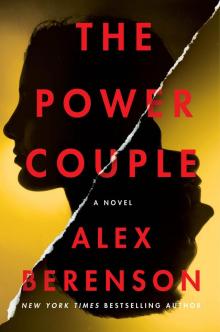 The Power Couple
The Power Couple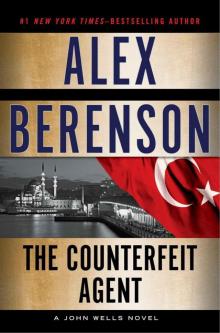 The Counterfeit Agent
The Counterfeit Agent The Midnight House
The Midnight House The Prisoner
The Prisoner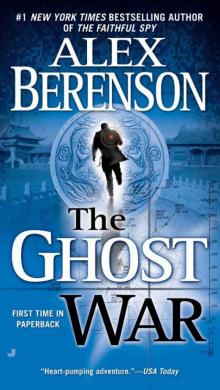 The Ghost War
The Ghost War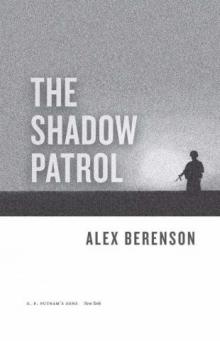 The Shadow Patrol jw-6
The Shadow Patrol jw-6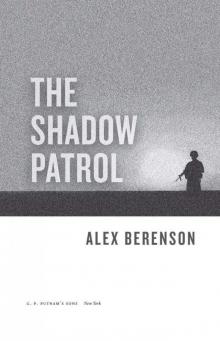 The Shadow Patrol
The Shadow Patrol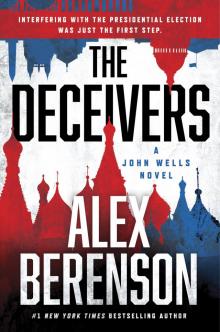 The Deceivers
The Deceivers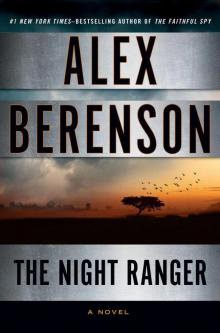 The Night Ranger jw-7
The Night Ranger jw-7 The Faithful Spy
The Faithful Spy The Prince of Beers (Kindle Single)
The Prince of Beers (Kindle Single)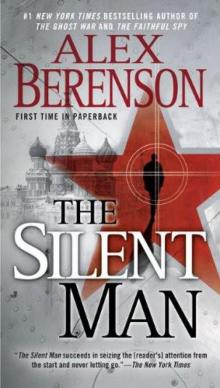 The Silent Man jw-3
The Silent Man jw-3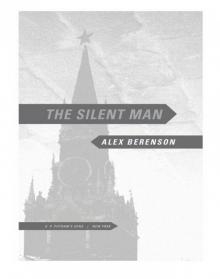 The Silent Man
The Silent Man The Wolves
The Wolves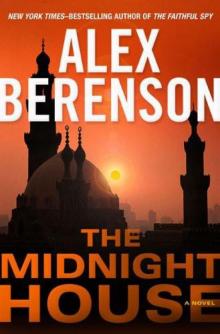 The Midnight House jw-4
The Midnight House jw-4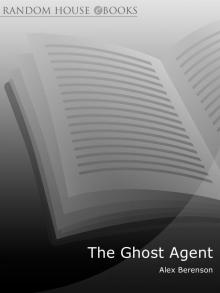 The Ghost Agent
The Ghost Agent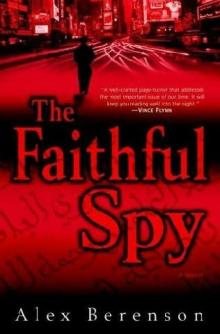 The Faithful Spy jw-1
The Faithful Spy jw-1 The Prince of Beers
The Prince of Beers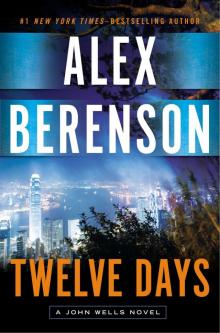 Twelve Days
Twelve Days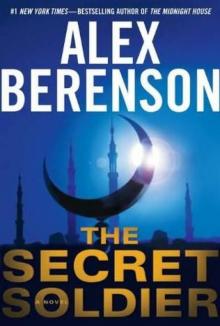 The Secret Soldier jw-5
The Secret Soldier jw-5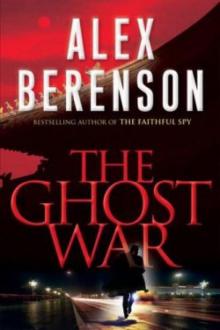 The Ghost War jw-2
The Ghost War jw-2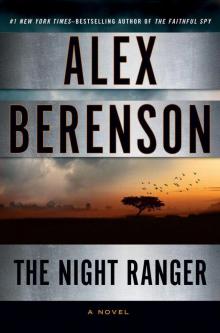 The Night Ranger
The Night Ranger